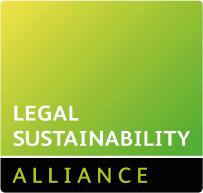An innocent defender is entitled to recover their legal costs when an action is abandoned against them, unless there are circumstances which persuade the court this would not be appropriate.

HF Scotland and Zurich Insurance PLC have successfully appealed against a judgment regarding the application of QOCS protection in an action involving two defenders. The point raised was an important one which would have had implications for claims beyond the original action.
The Claim: Mark Evans v CCG (Scotland) Ltd and Another
The pursuer was a self-employed joiner working on a building site, when a wooden partition fell over and struck him. Our clients, CCG (Scotland) Ltd, were the main contractors on site. Investigations identified that a colleague of the pursuer, employed by the joiners who had contracted with him to work on the site, had caused the partition to fall over.
Prior to proceedings being raised, a claim was intimated against both our clients and the joiners. A clear and unequivocal denial of liability was issued on behalf of our clients, confirming that they had complied with their duties and identifying who had caused the accident. Despite this, the pursuer chose to sue both our clients and the joiners.
A defence was maintained from the outset of the action. As matters progressed, the pursuer entered into settlement negotiations with the joiners. An agreement was eventually reached between them. However, there was no agreement between the pursuer and our clients.
Rather than formally abandon the action, the pursuer instead lodged a motion seeking decree of absolvitor in favour of our clients (a final, binding judgment of the court finding that they had no liability to the pursuer). He argued that he was not actually abandoning the claim against our clients, but rather could not take it any further because of his settlement with the joiners.
The Expenses (Costs) Hearing
The pursuer argued that his conduct did not amount to abandonment, as a formal minute was not lodged and the settlement which was agreed with the joiners was for the “full value” of his claim. Sheriff Campbell KC was persuaded by the submissions and awarded no expenses due to or by the pursuer and first Defenders.
The Appeal
It was submitted in the appeal that the correct starting point was to consider the general principles of the law on expenses. Where a pursuer sues two or more defenders, the pursuer pays the expenses of a defender who is absolved from the claim. The only exception would be where the court is persuaded to exercise its discretion and retain QOCS protection due to the circumstances of the claim.
In this action, all of the central litigation choices rested with the pursuer. His decision to unilaterally end proceedings against our clients, without judicial determination of his claim against them or reaching settlement terms with them, was properly characterised as abandonment.
It was argued that a formal minute not having been lodged did not matter; this was abandonment at common law. A different outcome being reached from other cases involving very similar circumstances, based upon a document not having been lodged, was inconsistent. Expenses had been awarded to an innocent defender wrongly sued in those decisions.
It was held in the original judgment that the pursuer’s actions brought the proceedings to an end. However, the judgment did not say what the pursuer’s actions amounted to. Any inability to continue with the proceedings was solely due to steps taken by the pursuer, of his own volition.
It was also argued separately that it was inaccurate to say that the pursuer had received a “full value” settlement from the joiners. He had lodged a Statement of Valuation of Claim seeking a higher sum than that which was finally accepted and a number of pursuer’s offers (equivalent part 36 offers) for higher sums had already been made and rejected. During settlement negotiations, issues concerning contributory negligence and litigation risks were acknowledged. The fact the pursuer made the assertion at the motion hearing did not make it correct.
The Outcome
A response to the grounds of appeal was lodged at the outset seeking to uphold the original decision. Both parties initially instructed Junior Counsel, and latterly Senior Counsel, for the conduct of the hearing on the appeal, which was set to proceed on 5 March 2024.
However, the pursuer eventually conceded the appeal in full. Sheriff Principal Ross recalled the original judgment and granted all orders sought, finding the pursuer liable to our clients for the expenses of the principal action and the appeal.
Comment
Steven Smart, Head of HF Scotland, noted that “the issue which arose was one which had significant implications for claims involving multiple defenders, which regularly occur in a variety of sectors and industries, including the construction industry. Some firms were in fact already trying to extend the approach to court actions where only a single defender was being sued.
QOCS protection was introduced in Scotland to provide greater access to justice for those who may not be able to pursue personal injury claims due to the financial risks involved. However, the rules are clear that it was not intended to provide blanket protection for those who sue parties incorrectly. An innocent defender is entitled to recover their legal costs when an action is abandoned against them, unless there are circumstances which persuade the court this would not be appropriate.
The pursuer in this action sought to circumvent that test with a novel argument seeking to identify a loophole in the legislation. However, in an area where the case law continues to develop, HF and our clients were aware of other relevant decisions and alive to the ramifications for all defenders if this judgment was not challenged. It is therefore welcomed that the appeal was conceded and granted in full, providing some clarity on the point.”
You may also like

Two new Partners bolstering HF’s full-service expansion
HF are delighted to have taken on two new Partners based in Glasgow. James McMillan has in-depth expertise focused on...

Court Orders U-Turn on One Way Costs Shift
HF Scotland and Zurich have secured a significant judgment in which a specialist Sheriff in the All-Scotland Sheriff Personal Injury...

Star striker scores own goal while playing on through injury time
Horwich Farrelly and Aviva defend policyholder from claim made by footballer who scored a hat trick while allegedly hurt. A...

Have your say about the Scottish Law Commission’s review of personal injury damages
This article originally appeared in The Scotsman, authored by Head of HF Scotland, Steven Smart. The Scottish Law Commission...





